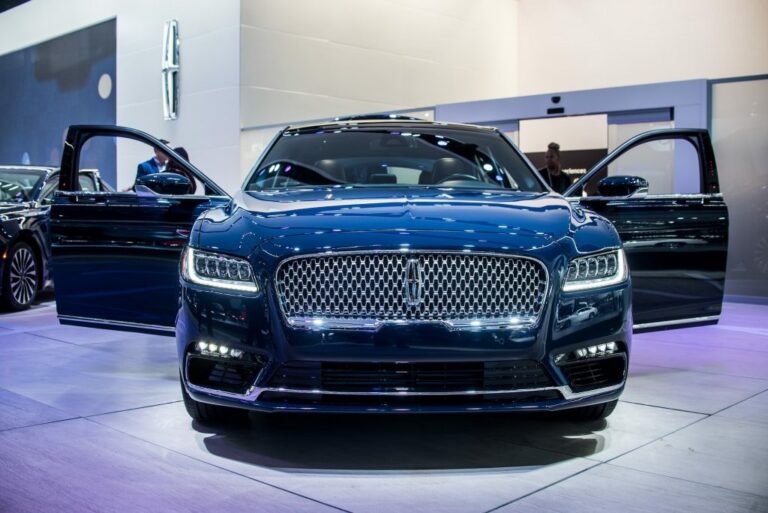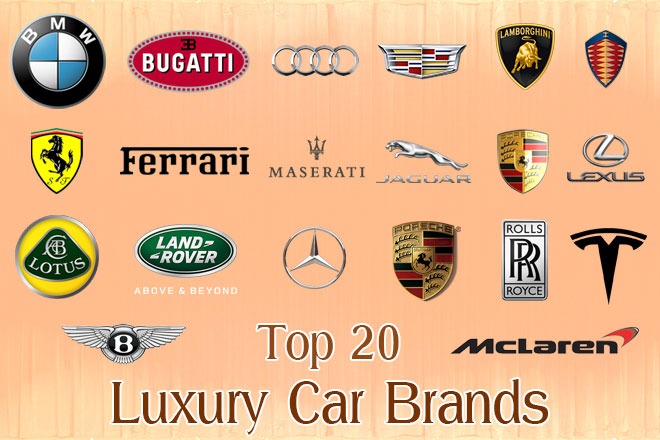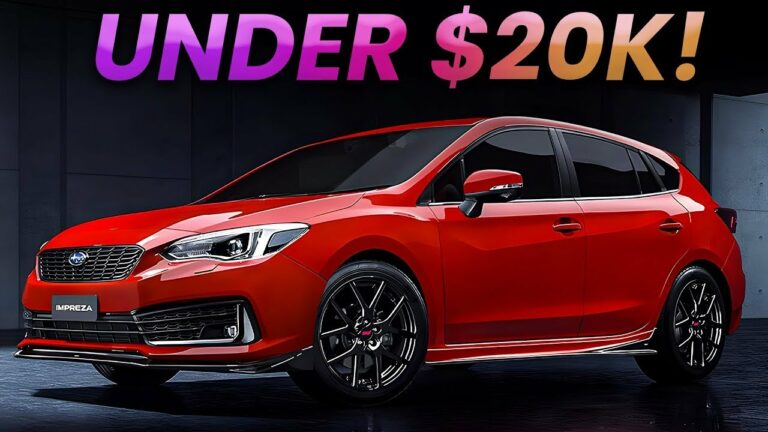What Car Brands Are Luxury: A Comprehensive Guide
What Car Brands Are Luxury: A Comprehensive Guide cars.truckstrend.com
The term "luxury" in the automotive world evokes images of unparalleled craftsmanship, cutting-edge technology, breathtaking performance, and an exclusive ownership experience. It’s more than just a high price tag; it’s a promise of superior quality, comfort, and prestige. For many, owning a luxury car is a statement of success, a reward for hard work, and an indulgence in the finer things in life. But with an ever-expanding market and new players emerging, understanding what truly defines a luxury car brand and which marques fall into this coveted category can be complex.
This comprehensive guide aims to demystify the world of luxury automobiles, exploring the characteristics that set these brands apart, categorizing the prominent players, and offering practical advice for navigating this high-end segment. Whether you’re an aspiring owner, an automotive enthusiast, or simply curious, join us as we delve into what makes a car brand truly luxurious.
What Car Brands Are Luxury: A Comprehensive Guide
Defining Luxury in Automobiles: More Than Just a Price Tag
While a high price is often a prerequisite, it’s far from the sole determinant of luxury in an automobile. True luxury car brands distinguish themselves through a combination of factors that elevate the driving and ownership experience beyond mere transportation. These include:
- Superior Materials and Craftsmanship: Exquisite leathers, polished woods, genuine metals, and meticulous stitching are hallmarks. Every surface feels premium, and attention to detail is paramount, often involving hand-finishing processes.
- Advanced Technology and Innovation: Luxury cars are often pioneers in adopting and refining the latest automotive technologies, from sophisticated infotainment systems and advanced driver-assistance features to groundbreaking powertrain innovations.
- Exceptional Performance and Driving Dynamics: While not all luxury cars are sports cars, they universally offer refined, powerful engines and meticulously engineered suspensions that provide a smooth, quiet, and confident ride, regardless of speed or road conditions.
- Unparalleled Comfort and Refinement: Cabins are designed to be sanctuaries of quietude, insulated from road noise and vibrations. Seating is ergonomically perfected, often with extensive adjustability, heating, ventilation, and massage functions.
- Brand Heritage and Exclusivity: Many luxury brands boast rich histories, pioneering innovations, or celebrated racing pedigrees that contribute to their mystique and desirability. Exclusivity is maintained through limited production runs, bespoke customization options, and selective distribution.
- Premium Ownership Experience: This extends beyond the vehicle itself to concierge services, exclusive events, extended warranties, and personalized dealership interactions that make owning a luxury car a seamless and privileged affair.
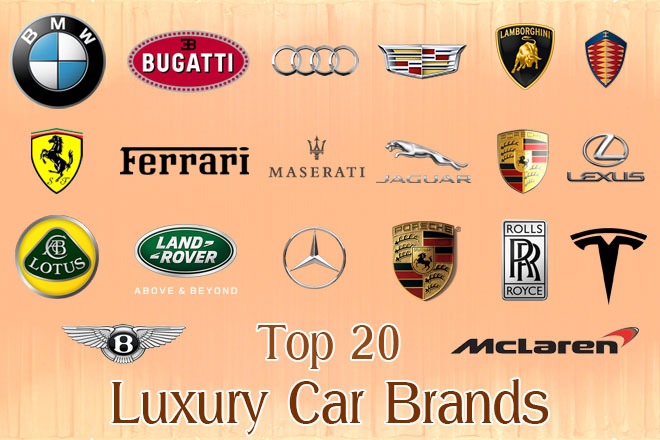
The Pillars of Luxury Car Brands: A Categorization
Luxury car brands can broadly be categorized into tiers based on their market positioning, price points, and the level of exclusivity they offer.
Tier 1: Ultra-Luxury & Exotic Brands

These are the pinnacles of automotive luxury, often hand-built, highly customizable, and produced in limited numbers. They represent the ultimate in exclusivity, prestige, and often, performance.
- Rolls-Royce: The epitome of opulence and silent majesty. Known for unparalleled comfort, bespoke customization, and a commanding presence. Models like the Phantom, Ghost, and Cullinan are designed to be driven, or more often, chauffeured.
- Bentley: Blending British elegance with formidable performance. Bentley offers a more driver-focused luxury experience than Rolls-Royce, with powerful engines and sumptuous interiors. The Continental GT, Flying Spur, and Bentayga are key models.
- Ferrari: While primarily a performance brand, Ferrari’s exclusivity, meticulous craftsmanship, and iconic status elevate it into the ultra-luxury segment. Owning a Ferrari is about passion, speed, and heritage.
- Lamborghini: Known for its flamboyant designs, extreme performance, and dramatic presence. Lamborghini cars are exotic works of art that deliver an exhilarating driving experience.
- Aston Martin: Synonymous with sophisticated British styling, powerful engines, and a luxurious, sporting feel. Often associated with James Bond, Aston Martin offers a blend of elegance and performance.
- McLaren: A pure performance brand with roots in Formula 1, McLaren produces highly advanced, lightweight supercars that deliver incredible speed and handling, coupled with a surprisingly refined cabin.
- Bugatti: At the absolute zenith of automotive engineering and exclusivity, Bugatti produces hypercars known for their mind-boggling speed, exquisite design, and astronomical price tags.
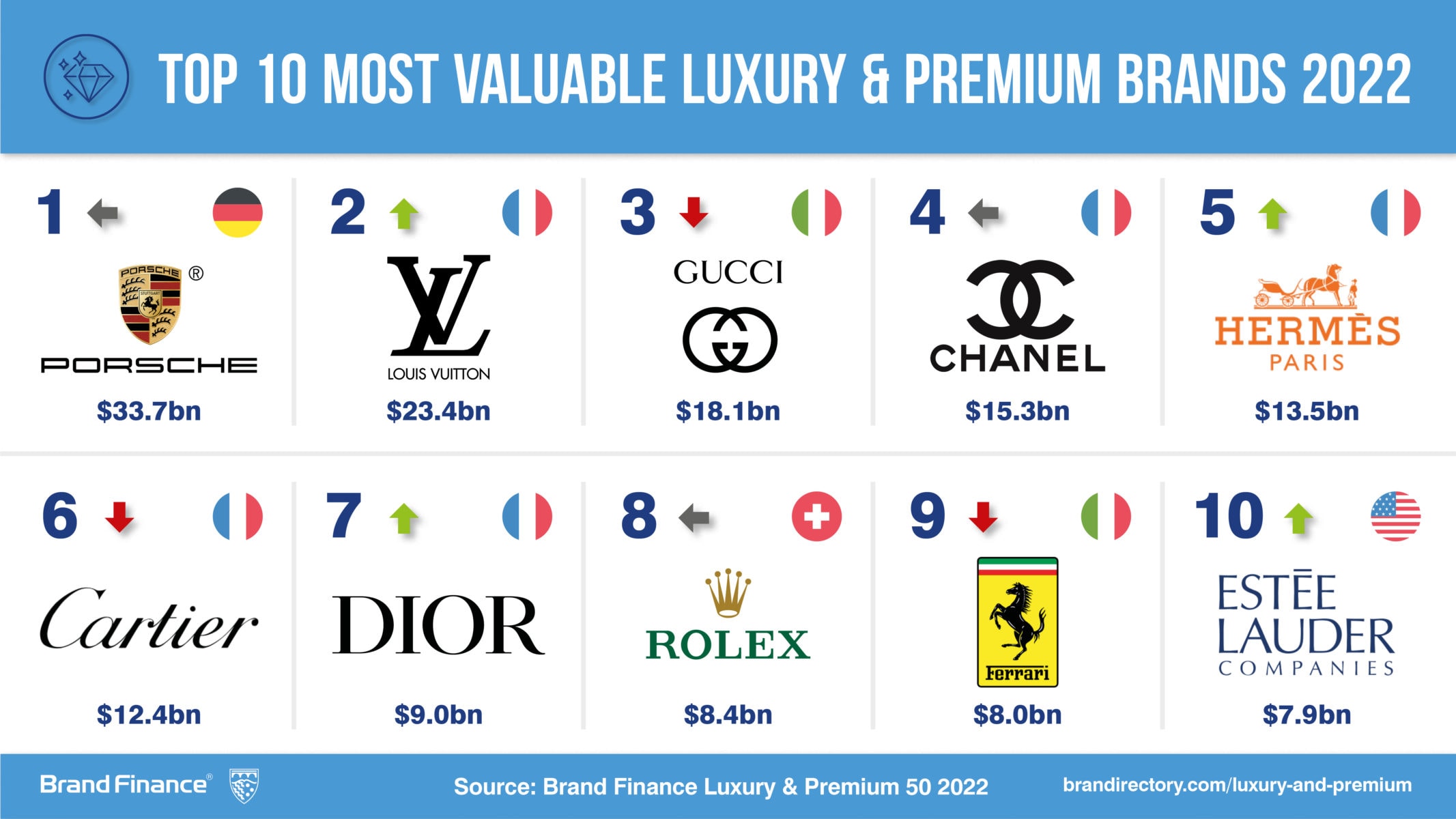
Tier 2: Premium Luxury & High-Performance Brands
This tier comprises well-established brands that offer a broad range of luxury vehicles, from sedans and SUVs to sports cars. They provide a compelling blend of advanced technology, performance, comfort, and prestige, often serving as benchmarks in their respective segments.
- Mercedes-Benz: A pioneer of the automobile, Mercedes-Benz is synonymous with engineering excellence, sophisticated design, and a comfortable, refined driving experience. Its AMG division elevates performance significantly.
- BMW: Known for its "Ultimate Driving Machine" philosophy, BMW combines sporty dynamics with luxurious interiors and advanced technology. Its M division offers high-performance variants.
- Audi: Characterized by its progressive design, quattro all-wheel drive, and state-of-the-art technology. Audi offers a sleek, modern, and highly refined luxury experience, with RS models providing extreme performance.
- Lexus: Toyota’s luxury division, renowned for its exceptional reliability, quiet cabins, refined ride quality, and impeccable customer service. Lexus offers a serene and dependable luxury experience.
- Porsche: While famous for its sports cars (911, Boxster, Cayman), Porsche has successfully expanded into luxury SUVs (Cayenne, Macan) and sedans (Panamera), all while maintaining its core focus on driving dynamics and precision engineering.
- Land Rover / Range Rover: The quintessential luxury SUV brand, offering unparalleled off-road capability combined with lavish interiors and commanding presence. Range Rover models are benchmarks for luxury SUVs.
- Jaguar: Embodies British elegance and sporting heritage, offering vehicles with distinctive styling, engaging driving dynamics, and luxurious interiors.
- Tesla (High-End Models): While not traditional luxury in terms of materials like wood and leather, Tesla’s Model S and Model X are considered luxury due to their cutting-edge electric powertrain technology, blistering performance, minimalist design, and advanced autonomous driving capabilities. They redefine luxury for the digital age.
- Maserati: Italian luxury and performance, known for distinctive styling, powerful engines (often Ferrari-derived), and a rich racing heritage.
- Volvo: Has undergone a significant transformation, now offering Scandinavian-inspired luxury defined by minimalist design, exceptional safety features, and a focus on sustainability and comfort.
Tier 3: Accessible Luxury / Near-Luxury Brands
These brands aim to provide many luxury features, sophisticated designs, and comfortable rides at a more attainable price point than the premium luxury brands. They often offer excellent value for money.
- Acura: Honda’s luxury arm, known for its reliability, advanced technology, and sporty driving dynamics.
- Infiniti: Nissan’s luxury division, offering distinctive styling, powerful engines, and comfortable, technology-rich interiors.
- Genesis: Hyundai’s relatively new luxury brand, which has rapidly gained acclaim for its striking designs, well-appointed interiors, advanced features, and competitive pricing, often surpassing established rivals in value.
- Cadillac: America’s historic luxury brand, now undergoing a renaissance with a focus on bold design, advanced technology (like Super Cruise), and powerful performance, aiming to reclaim its top-tier status.
Key Characteristics That Define Luxury Car Brands
Beyond the brand name, specific attributes consistently appear across luxury vehicles:
- Exquisite Interior Design & Materials: Think hand-stitched leather, genuine wood veneers, aluminum accents, and premium fabrics. Ergonomics are meticulously designed for comfort and ease of use.
- Advanced Powertrains: Powerful, refined engines (V6, V8, V12, or high-performance electric motors) that deliver seamless acceleration and a smooth, quiet ride.
- Sophisticated Suspension Systems: Often adaptive or air-based, designed to iron out road imperfections and provide a supremely comfortable ride while maintaining precise handling.
- Cutting-Edge Technology: State-of-the-art infotainment systems, large digital displays, advanced driver-assistance systems (ADAS), premium audio systems, and seamless connectivity features.
- Exceptional Noise, Vibration, and Harshness (NVH) Suppression: Extensive sound deadening, acoustic glass, and precise engineering minimize cabin noise for a tranquil environment.
- Distinctive Styling: Luxury cars often possess unique, identifiable designs that exude elegance, power, or avant-garde aesthetics.
- Personalization and Bespoke Options: The ability to customize a vehicle with unique colors, materials, and features, often through dedicated bespoke programs.
Navigating the Luxury Car Market: Practical Advice for Buyers
Choosing a luxury car is a significant investment and a deeply personal decision. Here’s what to consider:
- Define Your Priorities: Are you looking for ultimate comfort, blistering performance, cutting-edge tech, or understated elegance? Different brands excel in different areas.
- Set a Realistic Budget: Beyond the purchase price, luxury cars typically have higher insurance premiums, maintenance costs, and sometimes faster depreciation than mainstream vehicles.
- Test Drive Extensively: Don’t just take a quick spin. Drive on various road types, experience the infotainment, and get a feel for the car’s ergonomics and dynamics.
- Research Reliability and Ownership Costs: While luxury brands are built to high standards, some have better reliability records than others. Research common issues and expected maintenance costs.
- Consider Certified Pre-Owned (CPO): A CPO luxury vehicle can offer significant savings over new, often with extended warranties and rigorous inspections, providing excellent value.
- Evaluate the Ownership Experience: Visit dealerships. How is the service? Do they offer loaner cars, pick-up/delivery services, or exclusive events? This can be a significant part of luxury ownership.
- Think About Resale Value: Some luxury brands and models hold their value better than others. Porsche, Lexus, and certain Mercedes/BMW models tend to fare well.
The Evolving Landscape of Luxury Cars
The luxury automotive market is dynamic, constantly adapting to new trends and technologies:
- Electrification: Nearly every luxury brand now offers, or plans to offer, electric vehicles (EVs). From Tesla’s early dominance to the Porsche Taycan, Mercedes-Benz EQS, BMW i7, and upcoming electric Rolls-Royce and Bentley models, EVs are redefining luxury performance and quiet refinement.
- Autonomous Driving: Advanced driver-assistance systems (ADAS) are becoming increasingly sophisticated, moving towards hands-free driving capabilities on certain highways.
- Sustainability: A growing focus on eco-friendly materials, sustainable manufacturing processes, and carbon-neutral production is influencing luxury brands.
- Personalization: The desire for unique, tailor-made vehicles continues to grow, with bespoke programs becoming more comprehensive.
Concluding Summary
The world of luxury car brands is diverse and captivating, representing the pinnacle of automotive engineering, design, and craftsmanship. From the ultra-exclusive hand-built masterpieces of Rolls-Royce and Bentley to the high-performance sophistication of Mercedes-Benz and BMW, and the innovative electric luxury of Tesla, each brand offers a unique interpretation of what it means to be luxurious.
Ultimately, "What Car Brands Are Luxury" is about more than just a badge; it’s about the entire experience—the tactile feel of premium materials, the seamless integration of technology, the thrill of refined performance, and the prestige that comes with owning a vehicle crafted to the highest standards. As the industry evolves, luxury will continue to be redefined, but its core essence of unparalleled quality and an elevated experience will always remain.
Typical Price Range for Entry-Level Luxury Models (Estimated Starting MSRP)
Please note: These are highly generalized starting price ranges for entry-level models within each brand’s luxury lineup. Prices vary wildly by model, trim, options, region, and current market conditions. This table is intended as a broad guide, not a definitive price list.
| Luxury Brand Category | Example Brands | Typical Entry-Level Model Price Range (USD) | Key Characteristics |
|---|---|---|---|
| Ultra-Luxury & Exotic | Rolls-Royce, Bentley, Ferrari, Lamborghini, Bugatti | $200,000 – $3,000,000+ | Ultimate exclusivity, bespoke customization, extreme performance, hand-built, pinnacle of prestige. |
| Premium Luxury & High-Performance | Mercedes-Benz, BMW, Audi, Porsche, Lexus, Land Rover, Jaguar, Tesla (high-end), Maserati, Volvo | $50,000 – $180,000+ | Strong brand heritage, advanced technology, refined performance, superior comfort, broad range of models. |
| Accessible Luxury / Near-Luxury | Acura, Infiniti, Genesis, Cadillac | $35,000 – $70,000+ | Value-focused luxury, modern design, good technology package, comfortable interiors, competitive performance. |
Frequently Asked Questions (FAQ)
Q1: Are all expensive cars luxury cars?
A1: Not necessarily. While most luxury cars are expensive, not every expensive car is considered luxury. A high-performance track-focused car might be very expensive but prioritize raw speed and minimalist design over the comfort, refinement, and opulent materials typically associated with luxury. Similarly, highly modified or rare classic cars can be expensive without being "luxury" in the modern sense.
Q2: What’s the difference between "premium" and "luxury" in the automotive context?
A2: The terms are often used interchangeably, but "luxury" generally implies a higher echelon than "premium." "Premium" often refers to vehicles that are a step above mainstream cars in terms of quality, features, and comfort (e.g., higher trims of mainstream brands, or brands like Mazda and Volkswagen that offer a premium feel). "Luxury" specifically refers to brands whose entire identity and product line are built around exceptional craftsmanship, cutting-edge technology, bespoke options, and an elevated ownership experience, often at significantly higher price points.
Q3: Do luxury cars hold their value well?
A3: Generally, luxury cars tend to depreciate more rapidly than mainstream vehicles, especially in the first few years. However, certain brands and specific models within luxury lineups (e.g., Porsche 911, Lexus LS/LC, some limited-edition models) can hold their value relatively well. Ultra-luxury and exotic cars can sometimes even appreciate if they are rare and highly sought after.
Q4: Are luxury cars more expensive to maintain?
A4: Yes, typically. Luxury cars often use specialized components, advanced electronics, and require specific tools or highly trained technicians for maintenance and repairs. Parts can be more expensive due to their quality, complexity, or limited availability. Labor rates at luxury dealerships are also generally higher. It’s crucial to factor in these ongoing costs when considering a luxury purchase.
Q5: Can an electric car be a luxury car?
A5: Absolutely. Brands like Tesla have redefined luxury for the electric age, emphasizing advanced technology, instant performance, and a minimalist, digital-first interior. Traditional luxury brands like Porsche (Taycan), Mercedes-Benz (EQS), BMW (i7), and Audi (e-tron GT) are also producing electric vehicles that embody their brand’s luxury tenets, offering silent power, refined comfort, and cutting-edge features. The quietness of electric powertrains even enhances the luxury experience for many.

